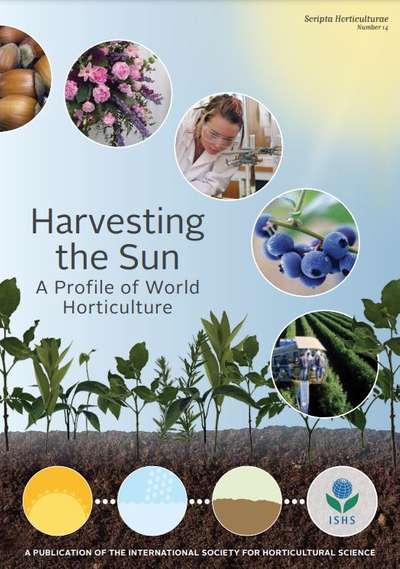Harvesting the Sun : a profile of world horticulture
McCaffrey, Daniel

72 pp : ill.
[ Gift of Dr Abram Bicksler Jan 24, 2023 ]
Scripta Horticulturae Number 14
Horticulture has an image problem. Most people—when they think about horticulture at all—think of the subject in small terms, as merely a pastime synonymous with gardening. This misconception devalues one of humanity's most significant scientific, economic, and aesthetic pursuits—and before you dismiss this as an exaggeration, imagine your physical and mental health in a world without fruits and vegetables, parks and play fields, flowers and trees.
Consider some of the most pressing questions of this century: Can we feed 9 billion people by 2050 while conserving water, land, atmosphere, and habitat? Can we reverse the human and financial costs of an increasingly popular lifestyle that provides too many calories and too little fiber, vitamins, minerals, and exercise? In emerging countries, can we reduce poverty and improve nutrition by expanding crop production, increasing yields, managing supply chains more effectively, and limiting spoilage and wastage? In wealthier countries where costs for land, water, energy, and labor are high, can we sustain rural livelihoods and conserve open spaces by investing in economically and environmentally sustainable ways to grow fruit, vegetables, ornamental plants, and other specialty crops? Horticulture has a key part to play in tackling each of these challenges, but to attract the necessary talent and resources this green industry must raise its public profile.
Publication Details
- Published: 2012
- Publisher: Belgium : ISHS (International SOciety for Horticultural Science)
- ISBN-13: 978 90 6605 0704 3
- Dewey Decimal: 633
- ECHO Library: 633 MCC